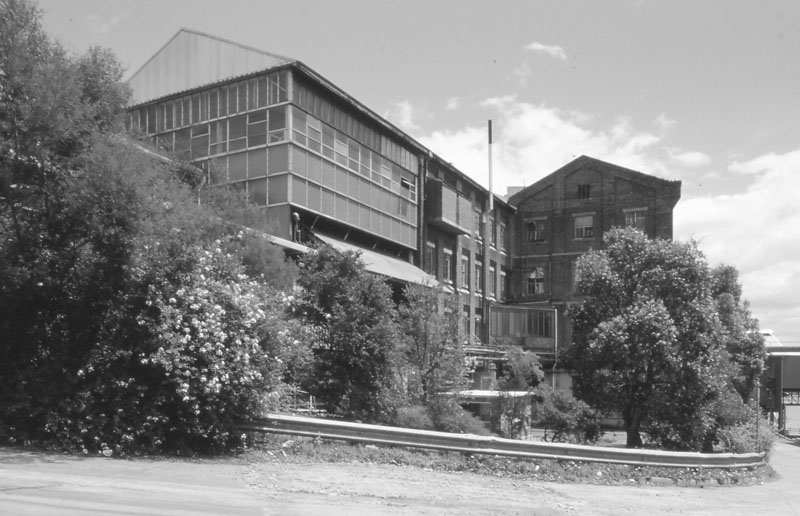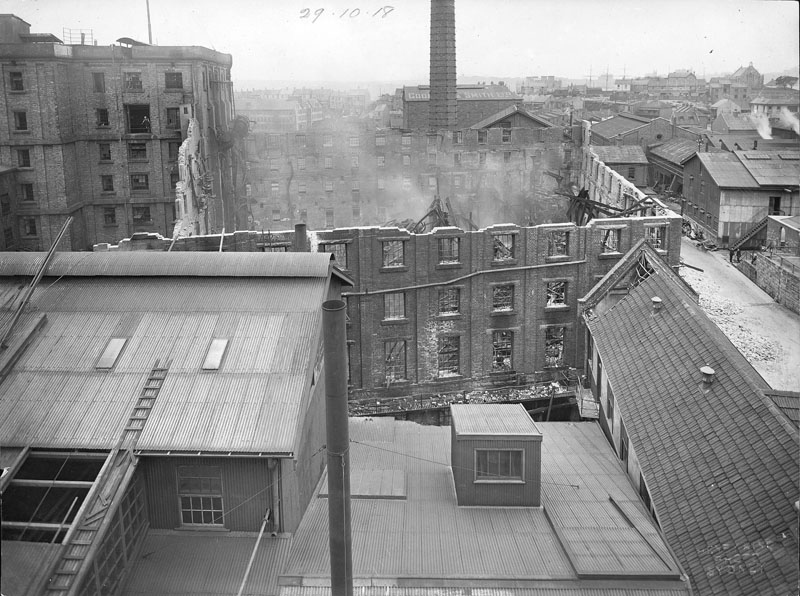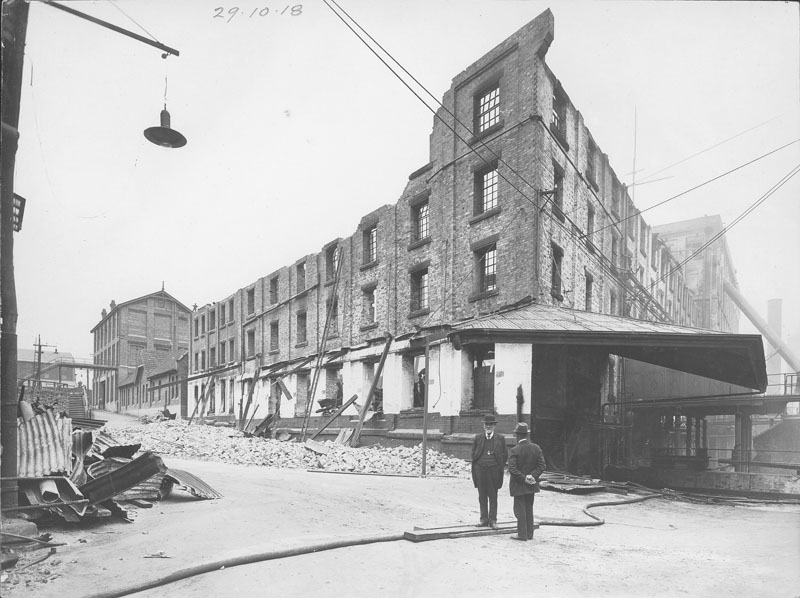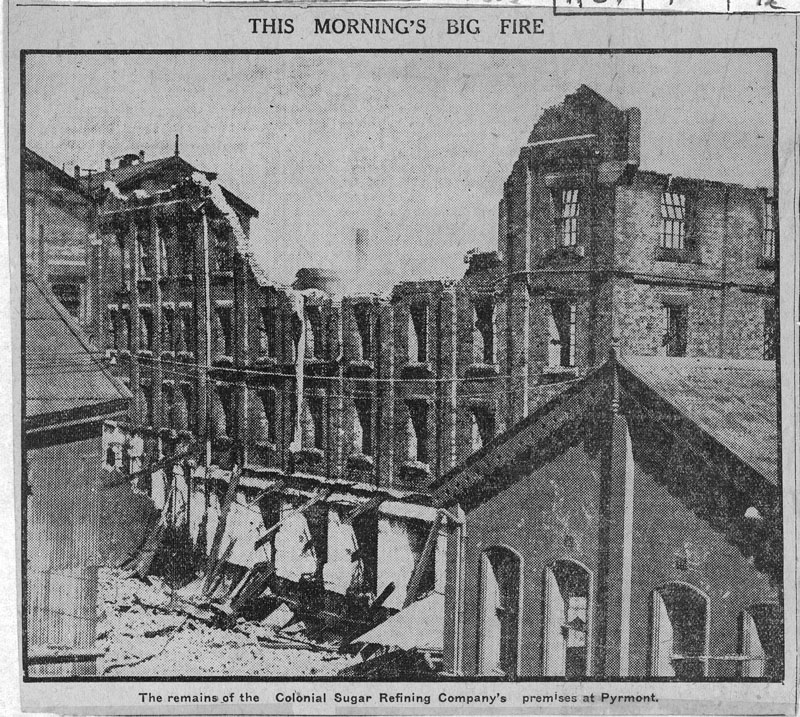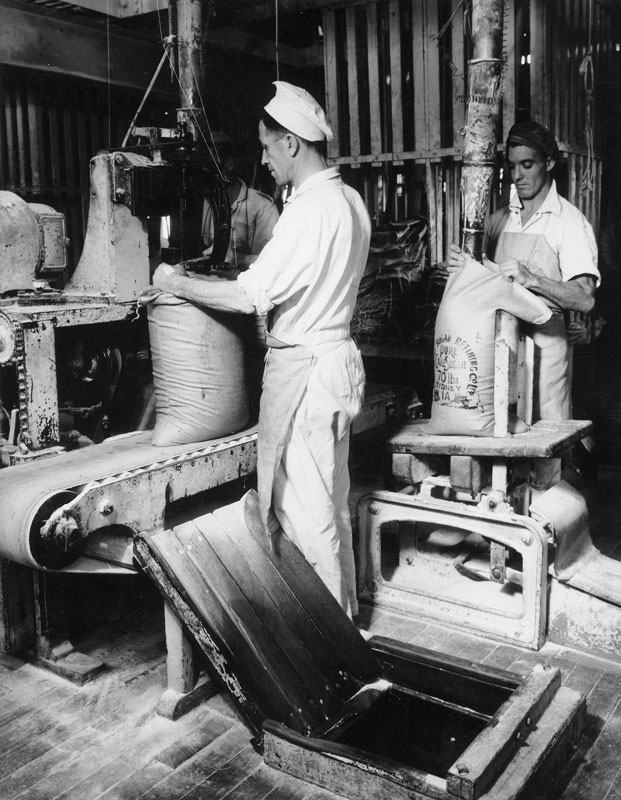Fleetview
Date Built: 2001
Architect: Cox Richardson
Two addresses: 41 Refinery Drive and 66 Bowman Street and bordering Refinery Square. Comprises 10 storeys and 150 apartments. Ground level dwellings are designed as townhouses. Site of CSR’s packing station and bag store.
Fleetview
1880 - 1950
This site was so central to CSR’s refinery that it hosted many and varied functions, as processing, analysing, handling and packaging sugar evolved over a hundred years.
A persistent task was bagging, in a southern section known as ‘the new material store’, ‘bag store’ or ‘packing station’. 140lb bags of raw sugar were unloaded at the wharf and slit open at the ‘cutting station’ (near the present Reflections) so that the contents tipped into a ‘shaker conveyor’. Bags were upended with a sack hook in a manoeuvre which sometimes resulted in a rookie falling in to the shaker. The bags were repaired on the Fleetview site, for reuse.
Further along the process, 70-pound bags were made and repaired here, and filled with refined sugar. Full bags were loaded onto lines of McCaffery’s horse-drawn drays queuing in Refinery Square, ready to take the sugar to railheads or to local customers. In the late 1930s, lorries began to replace drays, but the horses were briefly reprieved when the war (1939-45) slowed the conversion.
Fire in 1918 destroyed the refined sugar store that occupied most of this site and much of the Regatta Wharf site. The Herald report (see FIRE in Stories) provides a fine account of the structure that collapsed. It occupied ground between Refinery Square in the west and the boilers (now The Elizabeth) and the engineers’ offices (now the Rum Store) in the east. Four storeys high at Bowman Street (above a basement), it had seven storeys at the water’s edge; and on the night of the fire it held about 3000 tons of refined sugar.
In the restored building, the northern end was occupied by an electricians’ workshop, a delivery store and (from 1944) a laboratory. The Refinery Lab, one of three CSR laboratories, analysed all sugar products. Typical of this site’s rapid evolution, when the Research Lab moved to Roseville and the Central Lab took its premises, the Refinery Lab shifted to the Central Lab premises on the site of the present Escarpment.
